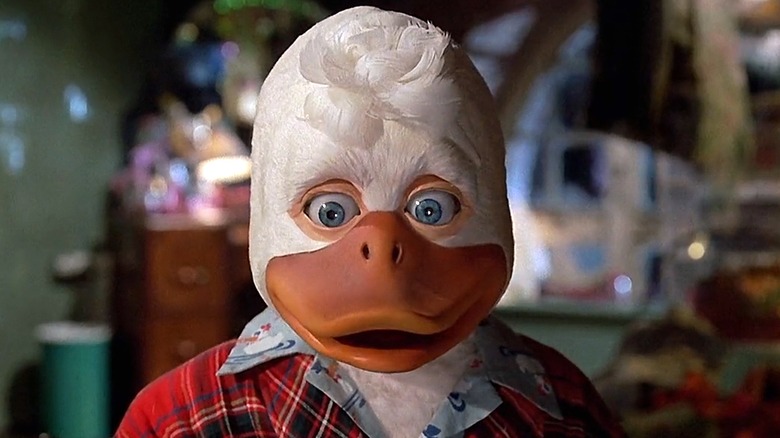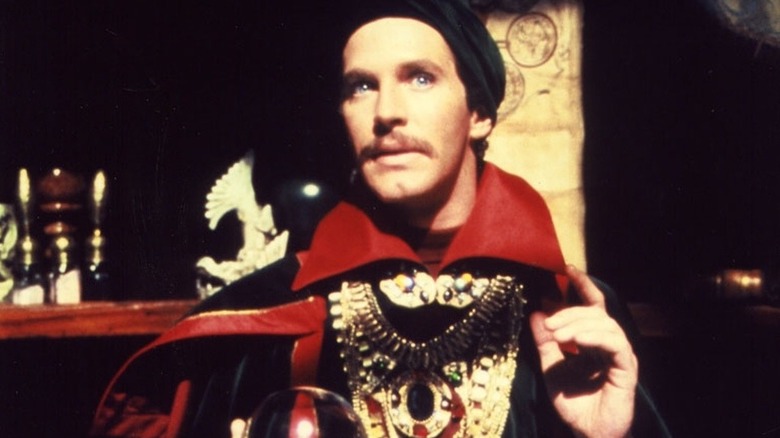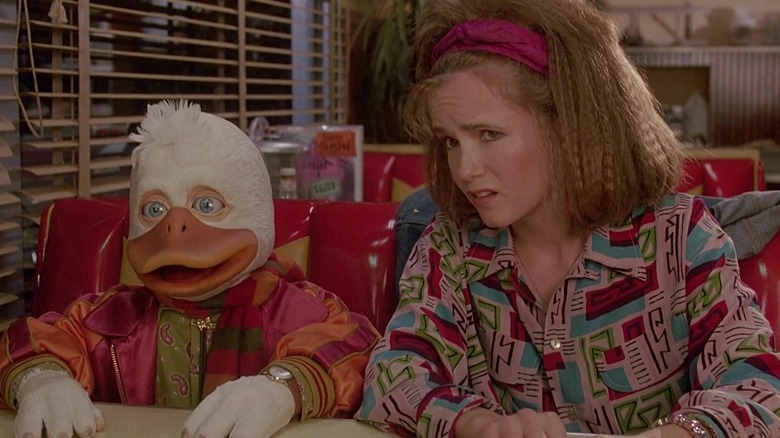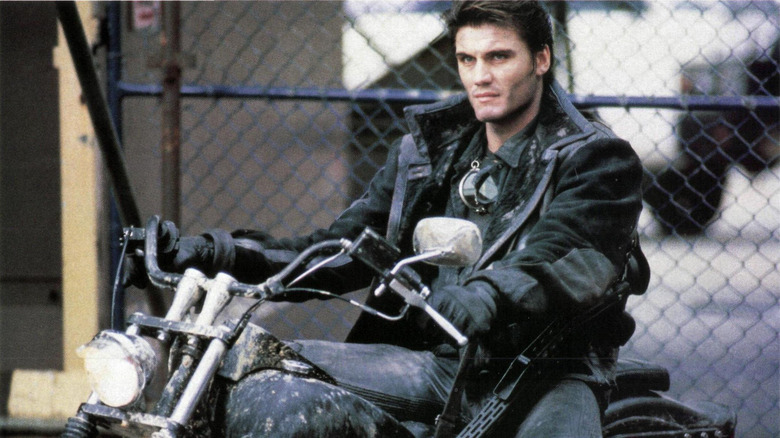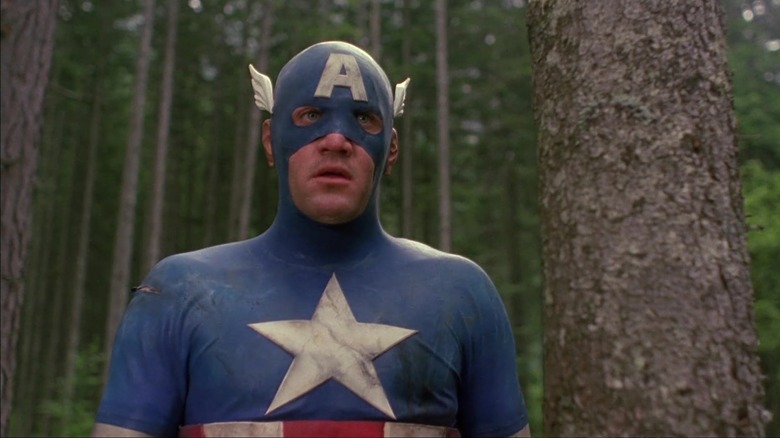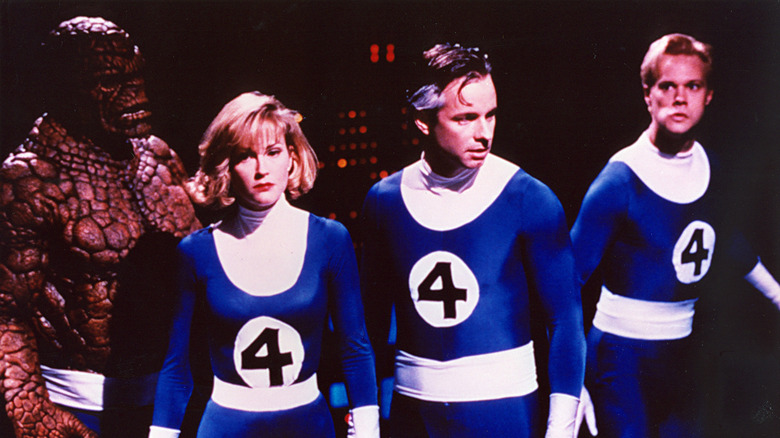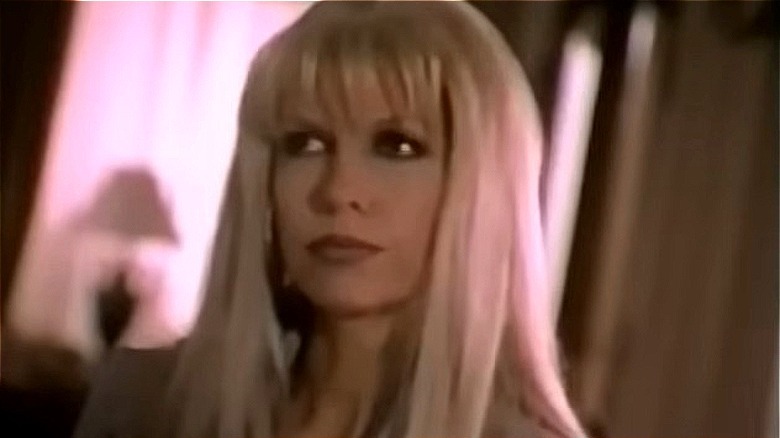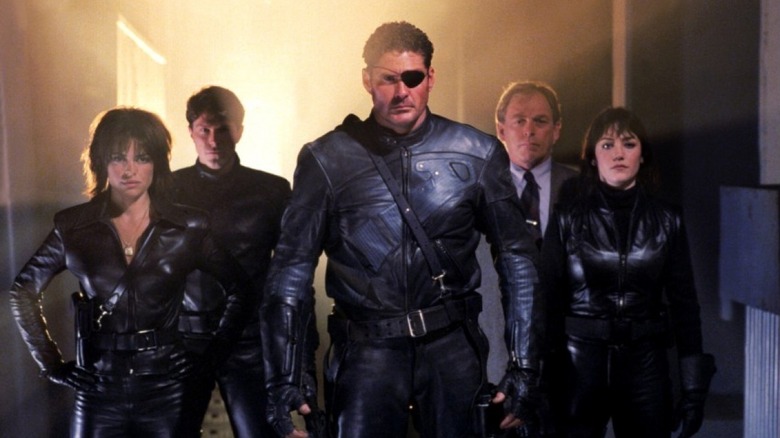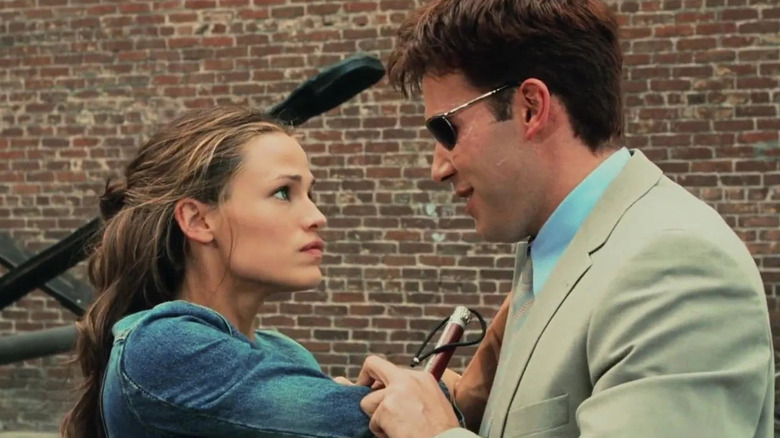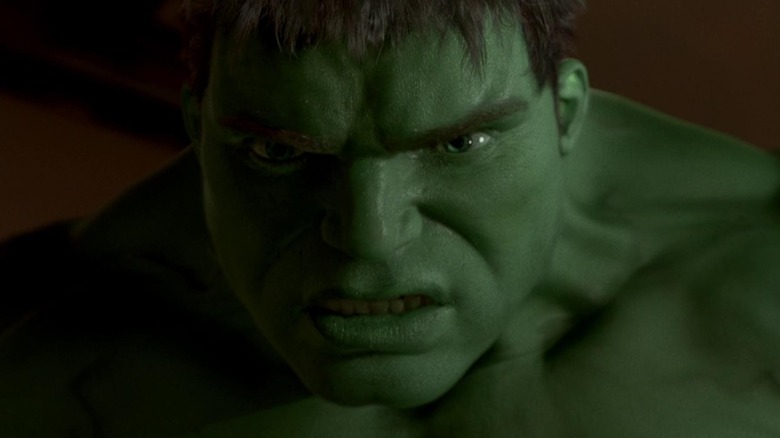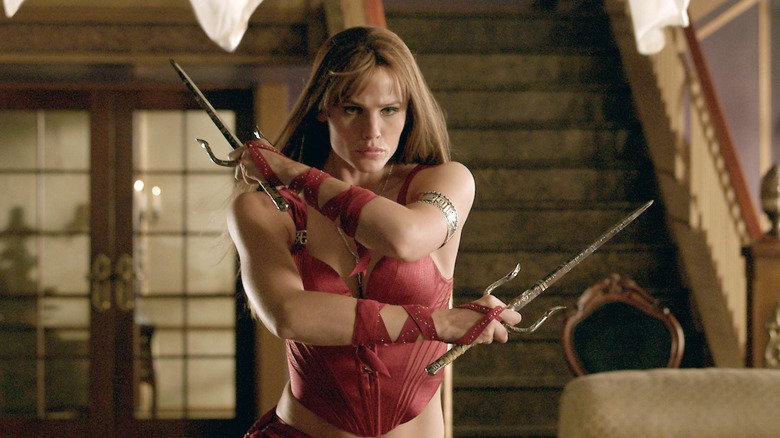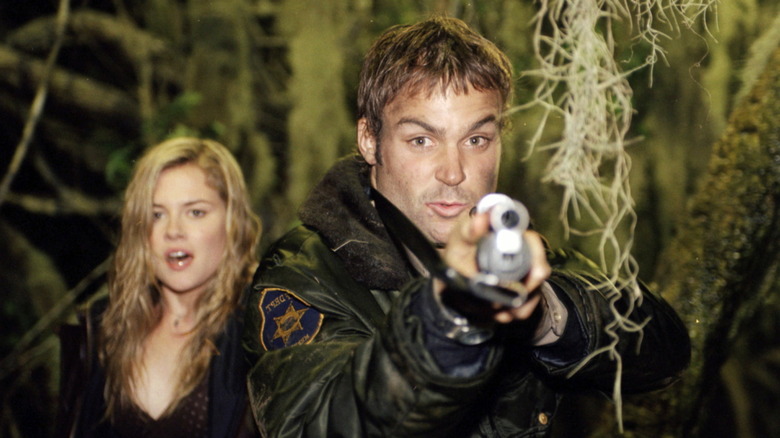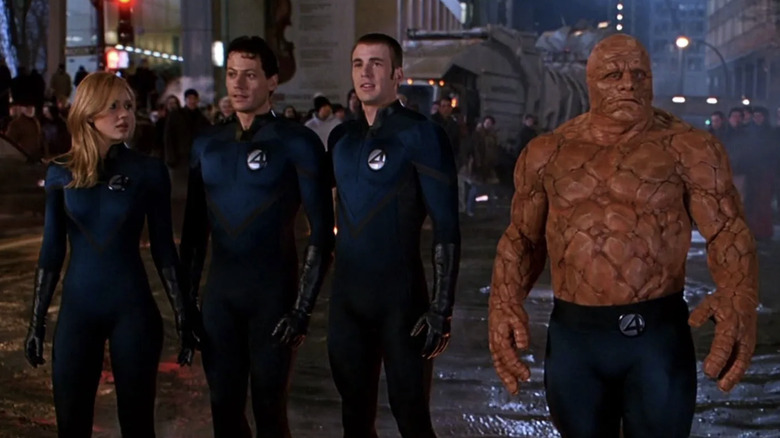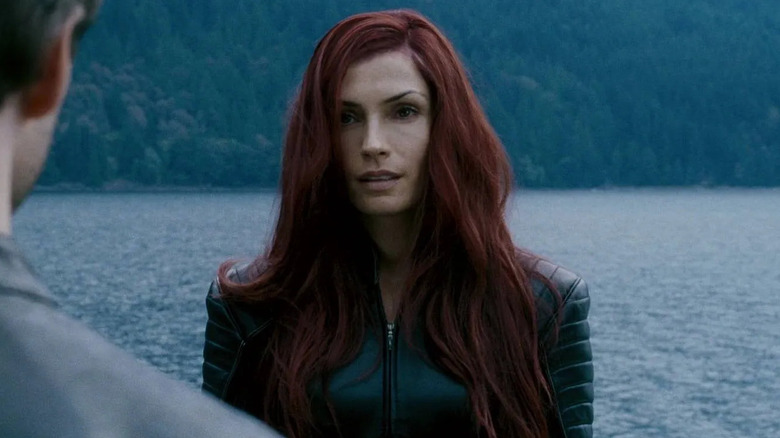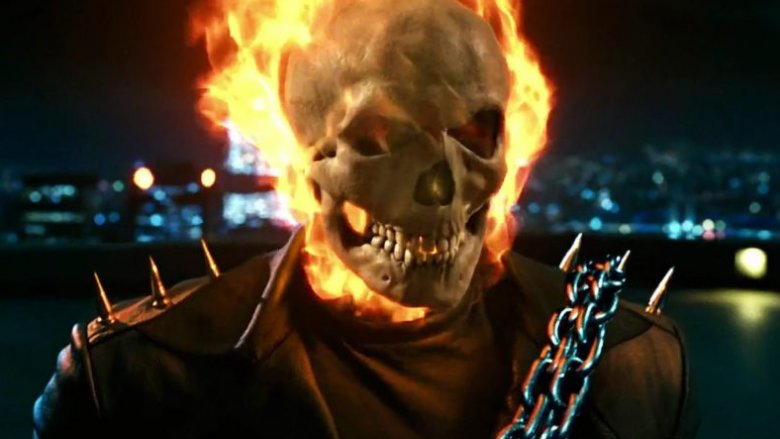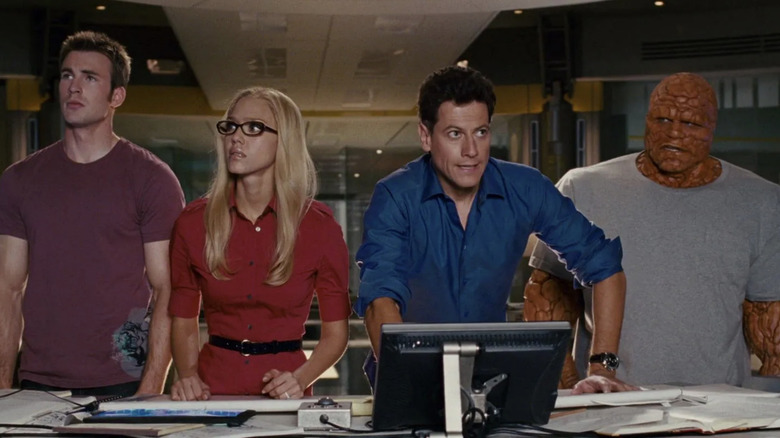Pre-Iron Man Movies Marvel Wants You To Forget
Marvel Studios is at the top of its game these days, riding a wave of success that's run for nearly a decade, all starting with the release of Iron Man in 2008. Almost no one can touch Marvel in the superhero game—but that wasn't always the case.
Before the comics company decided to take its fate into its own hands and create the shared Marvel Cinematic Universe (MCU), they licensed a slew of properties off to other studios or settled for low-budget adaptations. As you can likely imagine, the level of quality varied. Greatly.
Going all the way back to the wild, wild west of the 1970s and 1980s through the early days of the modern superhero movie era, these are the misbegotten movies Marvel probably just wishes we'd all forget about.
Dr. Strange (1978)
Long before Benedict Cumberbatch brought us one heck of a good Doctor Strange film adaptation, Marvel fans were given this low-budget television movie in 1978. It took some major liberties with the comics canon, recasting Doctor Strange (Peter Hooten) as a psychiatrist who inherits magic abilities from his father and is tasked with becoming the new Sorcerer Supreme. The film is almost too afraid to be a comic book movie, and spends a lot of its runtime focusing on Doctor Strange being, you know, a doctor. One redeeming factor is Jessica Walter, who plays a deliciously evil version of Morgan Le Fay who's working to invade Earth. If anything, it's a fascinating footnote in genre history—and for a long time, it looked like it might be the good Doctor's live-action swan song. It would be nearly four decades before Marvel brought Stephen Strange to life on the big screen.
Howard the Duck (1986)
There are some who still defend this movie, but c'mon—it's pretty bad. (It also features an almost-hookup scene between Lea Thompson and a giant duck.) Critics positively savaged it, and it was an epic flop at the box office. The weird part is that, on the surface, it had a lot of really cool things that could've made it a hit. George Lucas (Star Wars) was attached as a producer, and though Howard the Duck isn't a very well-known character, his snarky attitude had all the makings for what could've been a very clever, genre-busting film. It's a classic fish (err, duck?) out of water tale, but the end results were so bad that Howard was retired from the screen until he resurfaced in Guardians of the Galaxy's post-credits scene nearly 30 years later.
The Punisher (1989)
Outside of the Hulk, the Punisher is one of those characters Hollywood just can't leave alone. We had two Punisher films in the 2000s (and of course there's a Netflix series), but before all that, Marvel licensed the character for a 1989 film that cast action star Dolph Lundgren in the role of ex-cop turned vigilante Frank Castle. For the late '80s, that was pretty much perfect casting, and for the most part, they kept the Punisher's comic origin intact, with Castle striking back at criminals after losing his family in a mob hit. So what went wrong? Critics panned the movie for never really moving beyond the trappings of a generic action flick, and beyond Castle himself, the film didn't take much of anything from the comics.
Captain America (1990)
This one was a train wreck from the start. Despite some ambition to make a blockbuster, the film had a low budget from the jump, which was cut to under $6 million before production was underway. Relatively unknown actor Matt Salinger was cast to play Steve Rogers, while Scott Paulin played the Red Skull. Ostensibly, the story follows the major comic book beats, with a sickly Rogers volunteering for the Super Soldier program and gaining superpowers, then heading off to stop the Red Skull. In execution, the film was a muddled mess—the story meanders, and critics noted the action and dialogue was cheap and cheesy (which isn't much of a shock, considering the budget). The movie was released in the U.K. in 1990, and the studio hoped to release it theatrically in the U.S.; when that didn't pan out after two years of trying to land a distribution deal, it was finally dumped straight to video in 1992.
Fantastic Four (1994)
Director Roger Corman's Fantastic Four is arguably one of the most famous films to never be released, becoming the stuff of legend after being traded on VHS copies among fans throughout the 1990s. With Constantin Film poised to lose the rights to the Fantastic Four franchise, the studio hired the B-movie legend to crank out an FF adaptation on a shoestring budget of $1 million. Since he couldn't focus on the big action and splashy effects, Corman instead tried to tell a simple story about Marvel's First Family, and though he really did try to take the material seriously, the cast of unknowns just couldn't break free from the project's low-budget, B-movie roots.
The film was scheduled for release in 1994, but was pulled from the schedule and never officially distributed. Years later, Stan Lee confirmed what many fans suspected: the project was never meant to come out. Instead, it was put into production so Constantin could retain the rights to the characters. As Lee noted: "The tragic thing is that the people involved with the film were not aware that the movie was never supposed to be shown to anyone." Ouch.
Generation X (1996)
Four years before Bryan Singer brought X-Men to the big screen, Fox dabbled in the world of mutants with the 1996 TV movie Generation X. The series mostly features B-listers from the X-Men canon, and follows Jubilee (Heather McComb) and a team of mutants at Xavier's School for Gifted Youngsters (led by Finola Hughes' Emma Frost). A cautionary object lesson for future X-adaptations, the series suffered from a skimpy budget that made the cool mutants and power manifestations impossible to execute. Even worse, it didn't even use one of the myriad villains from the X-Men comics, instead, casting a woefully underused Matt Frewer (Max Headroom) as a generic evil scientist. It's a shame, because looking to the comics, there's so much potential to turn this into a television series. It's the story of misfit mutants trying to find a place in the world as the ultimate outsiders, with a boatload of crazy sci-fi and comics tropes. How do you mess that up? Well...like this.
Nick Fury: Agent of S.H.I.E.L.D. (1998)
Nick Fury is one of the coolest characters in Marvel's stable, and if you're bringing him to live action, hiring Baywatch alum and Austrian pop star David Hasselhoff to do it wasn't the worst idea. But despite some cool ideas and Hasselhoff's cigar-chomping skills, this one still fell short of fans' expectation. As IGN noted in its review, "The character of Nick Fury has a rich history and a deep back story that may someday make for a good film. But this low-budget, low-quality affair is definitely not it."
Though Samuel L. Jackson has since taken ownership of the eyepatch-wearing super spy, Hasselhoff maintains that his version of Fury is still definitive. He told MovieWeb that his take on the character was mapped out with Stan Lee's blessing, written to be "tongue-in-cheek, and he had a cigar in his mouth, he was a tough guy—he was cool." He took it a step further, noting Lee told him he was "the ultimate Nick Fury." We'd wager Jackson might have something to say about that.
Daredevil (2003)
Ben Affleck is the DCEU's Dark Knight, but a decade or so before he landed that role, he was the first big-screen version of Daredevil—and the results were less than stellar. The Affleck-led Daredevil movie scored a mediocre 44 percent on review aggregator Rotten Tomatoes, and it's easy to understand why: the story fell into a lot of superhero tropes, and Affleck's Matt Murdock was basically a poor man's version of Batman. The tone seemed to jump all over the place, and not even the chemistry between Affleck and co-star Jennifer Garner could keep it on track. Even Affleck himself admitted he eventually came to regret signing onto the project. Interestingly enough, many fans argue the "Director's Cut" of the film—which makes some fairly drastic changes to the flow and tone—was actually a pretty good movie. Alas, it was too little, too late.
Hulk (2003)
Ang Lee's Hulk is a borderline entry on this list, and is actually (just barely) fresh on review aggregator Rotten Tomatoes with a 61 percent rating. Hiring the artistic Lee (Crouching Tiger, Hidden Dragon, Life of Pi) to tackle a superhero story was a bold move, and there's no doubt the character of Bruce Banner is a fascinating, layered figure ripe for exploration. Hulk delved into the emotion of the character, but for a summer blockbuster, it came off as a bit too think-y and talk-y. In fact, neither of the theatrical Hulk movies have made much of an impact, even the one actually included in the Marvel Cinematic Universe (2008's The Incredible Hulk). Hulk works best in an ensemble—it just took a few tries to figure that out.
Elektra (2005)
This Daredevil spinoff isn't just one of the worst Marvel movies, it's simply all-around awful. After Daredevil fizzled, the studio thought an Elektra movie focused on Jennifer Garner's sexy assassin was a good move. The studio was wrong—and the end results were positively savaged by critics. As io9 notes: "Elektra isn't even a dumpster fire of a movie; a dumpster fire would have a more coherent plot than Elektra." Thankfully, Marvel was finally able to get the character right (now played by Elodie Young) with her appearance during the second season of Netflix's Daredevil series.
Man-Thing (2005)
Hollywood dug deep into the Marvel canon to try and get into the comics game with Man-Thing, with decidedly awful results. This b-level character's story is hard to pull off under the best of circumstances, and it's even tougher when you're slashing the budget and working from a shoddy script.
According to Nick Nicolaou, who worked on the effects for Man-Thing, the creature viewed in the film was never even supposed to make it to the screen. Nicolaou said the model was conceived to serve as an on-camera stand-in, with plans to replace it with a CGI creature in post-production. The budget was eventually cut, though, and the stand-in was used throughout the entire film. The film itself debuted with a small theatrical run internationally, but bumped to television in the U.S., where it premiered to little fanfare on Syfy.
Fantastic Four (2005)
Fans waited a long time to see a great Fantastic Four movie—and sadly, they're still waiting, even after multiple attempts. This 2005 effort was at least a big-budget affair, with solid effects work and a talented cast (including Chris Evans, Jessica Alba, and Michael Chiklis) bringing Marvel's First Family to life. Unfortunately, none of that was enough to save the film itself. Critics panned Fantastic Four for its bland story and the sheer goofiness of the tone, which tried to match the family-friendly approach of the comics but ended up just being silly. As UPROXX notes, it lands somewhere between camp and schtick, but never in a way that indicates it's aware of what it's trying to be.
X-Men: The Last Stand (2006)
The first two X-Men films from director Bryan Singer played a key role in ushering in the modern age of superhero movies, with the franchise still technically going to this day, but there's one black sheep in the franchise: The Last Stand. Singer dropped out to direct Superman Returns, so Brett Ratner stepped into a tight production schedule that ended with one heck of a half-baked and disappointing effort. It randomly killed off major characters, and attempted to shoehorn in the Phoenix Saga—one of the biggest stories from the comics canon—along with several other plots. It was so bad that 2014's X-Men: Days of Future Past basically retconned the movie out of existence by altering the timeline, thus "repairing" the franchise.
Ghost Rider (2007)
This film features Nicholas Cage on a motorcycle with a flaming skull for a head. How do you get that so wrong? Just watch the film itself for a case study (if you dare). The movie is framed almost like a boring video game, with a so-cheesy-it's-just-bad script and an explosion of messy CGI, and while Cage isn't entirely awful in the role, the story does him no favors. The film scored an abysmal 26 percent on review aggregator Rotten Tomatoes, and the fact that it was delayed for years due to script issues makes a lot of sense in retrospect. We'd all probably have been better off if the Spirit of Vengeance never escaped development hell.
Fantastic Four: Rise of the Silver Surfer (2007)
Despite its critical shortcomings, the first Fantastic Four film did make a decent bit of cash at the box office, so the studio ordered up a second adventure—and pulled out of Marvel Comics' biggest baddies to boot, resulting in one of the biggest letdowns in cinema history. Fantastic Four: Rise of the Silver Surfer pitted the Fantastic Four against Galactus, except instead of the gigantic world-destroyer fans knew from the comics, we got a...big, mean cloud. Critically panned, the film was bad enough the studio pulled the plug on a planned third film. After this one, the Fantastic Four were shelved for almost a decade, though the eventual (abysmal) reboot in 2015 was far from an improvement.
